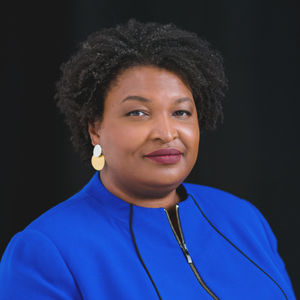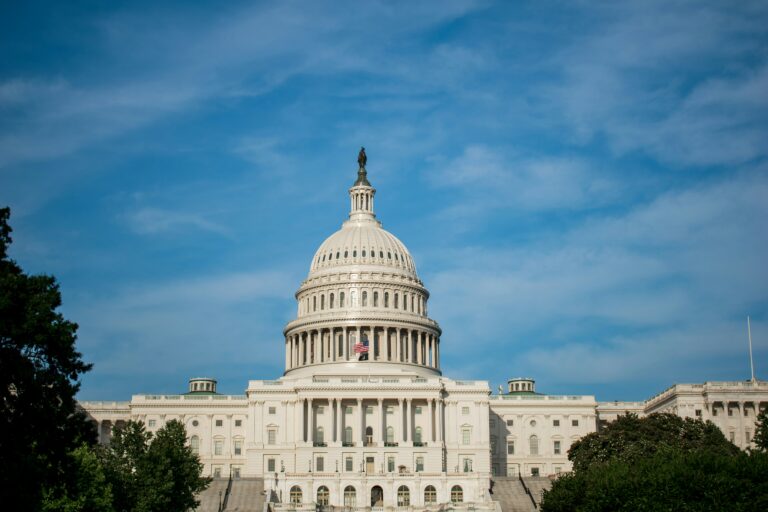A core shared value in American society, one deeply woven into our national narrative, is the belief in equal opportunity—the idea that everyone should have a fair chance to succeed based on their effort, talent, and ambition, regardless of their background.
Equal opportunity in the American workplace has deep roots in the nation’s struggle for civil rights and economic fairness. Though disparities remain for women, different racial groups, and others in areas such as employment rates, wages, wealth, and occupational segregation, progress has been made. From the Civil Rights Act of 1964, which outlawed employment discrimination based on race, color, religion, sex, or national origin, to affirmative action policies and the Americans with Disabilities Act of 1990, the U.S. has made significant strides toward leveling the playing field.
Today, the legacy and pursuit of equal opportunity face significant challenges. Recent debates and policy shifts risk weakening efforts to address discrimination and harassment, and may obscure the history and progress we’ve made toward greater inclusion. These trends raise important questions about how we uphold our shared commitment to fairness and democratic values. At a time when trust in institutions is wavering and inequality is rising, reaffirming our commitment to equal opportunity is more urgent than ever. Join the Aspen Institute Economic Opportunities Program on September 4th, 2025 from 2:00 to 3:15 Eastern for “The Future of Equal Opportunity,” where an esteemed panel will explore the current landscape, emerging challenges, and the strategies needed to protect and strengthen opportunity in the American workplace.
Speakers

The Honorable Stacey Abrams
Political Leader, Business Owner, and Author
Stacey Abrams is a political leader, business owner and New York Times bestselling author. A tax attorney by training, Abrams served 11 years in the Georgia House of Representatives, seven as Minority Leader, and became the Democratic nominee for governor of Georgia in 2018 and 2022. Over the course of her career, she has launched multiple organizations devoted to democracy protection, voter engagement, tackling social issues, and building a more equitable future in the South. Committed to the pursuit of equity, she works to break barriers for young people, people of color, and the marginalized through her work in the public, nonprofit, and corporate sectors.

Kalpana Kotagal
Commissioner, U.S. Equal Employment Opportunity Commission (EEOC)
Commissioner Kalpana Kotagal joined the Equal Employment Opportunity Commission (EEOC) as a commissioner in August 2023.
Before joining the Commission, Commissioner Kotagal was a partner at Cohen Milstein, where she was a member of the firm’s Civil Rights & Employment practice group and chaired the firm’s Hiring & Diversity Committee. For nearly two decades, Commissioner Kotagal represented marginalized groups in employment and civil rights class actions. Her cases often involved cutting-edge issues related to Title VII, the Equal Pay Act, the Americans with Disabilities Act, and the Family and Medical Leave Act, as well as wage and hour issues and the non-discrimination provision of the Affordable Care Act.
During this time, Kotagal co-authored the “Inclusion Rider”—a voluntary agreement between actors, filmmakers, and studios aimed at advancing equal opportunity in the film industry both behind and in front of the camera. The contract provision gained recognition when actor Francis McDormand endorsed it in her acceptance speech during the 2018 Academy Awards. In the years since, Kotagal has collaborated with studios, production companies and actors to advance implementation of the Inclusion Rider in film, television, music and fashion.
Commissioner Kotagal graduated with honors from both Stanford University and the University of Pennsylvania School of Law. She also clerked for Judge Betty Fletcher on the Ninth Circuit. The commissioner has dedicated her career to supporting workers and championing diversity, equity, inclusion, and accessibility. She is honored to continue that fight at the EEOC. A daughter of immigrants from India, Commissioner Kotagal is the first female commissioner of Indian descent.

Dr. Manuel Pastor
Distinguished Professor of Sociology and American Studies & Ethnicity at the University of Southern California
Dr. Pastor is a distinguished professor of sociology and American studies & ethnicity at the University of Southern California. He currently directs the Equity Research Institute at USC. Pastor holds a doctorate in economicsfrom the University of Massachusetts, Amherst, and is the inaugural holder of the Turpanjian Chair in Civil Society and Social Change at USC.
Pastor’s research has generally focused on issues of the economic, environmental and social conditions facing low-income urban communities – and the social movements seeking to change those realities.

Natalie Foster (Moderator)
Senior Fellow, Aspen Institute Economic Opportunities Program; Founder and President, Economic Security Project
Natalie Foster is a leading architect of the movement to build an inclusive and resilient economy that works for all. President and co-founder of Economic Security Project and Aspen Institute Fellow, her work and writing has appeared in The New York Times, USA Today, TIME, Business Insider, CNN, and The Guardian.
Natalie speaks regularly on economic security, the future of work and the new political economy. An unstoppable builder, Natalie previously founded the sharing economy community Peers and co-founded Rebuild the Dream with Van Jones, and served as Digital Director for President Obama’s Organizing for America – a leading partner in winning transformative healthcare reform. A daughter of a preacher from Kansas, Natalie draws on the values of community, dignity, and optimism to build a better America. She lives in Oakland, California with her husband and two kids. The Guarantee is her first book.
Learn More
About the Opportunity in America series
Opportunity in America considers the changing landscape of economic opportunity in the US and implications for individuals, families, and communities across the country. The series highlights the ways in which issues of race, gender, and place exacerbate our economic divides, and ideas and innovations with potential to address these challenges and broaden access to quality opportunity. as.pn/opportunityinamerica
About the Economic Opportunities Program

The Aspen Institute Economic Opportunities Program hosts a variety of discussions to advance strategies, policies, and ideas to help low- and moderate-income people thrive in a changing economy. To learn about upcoming events and webinars, join our mailing list and follow us on social media.









